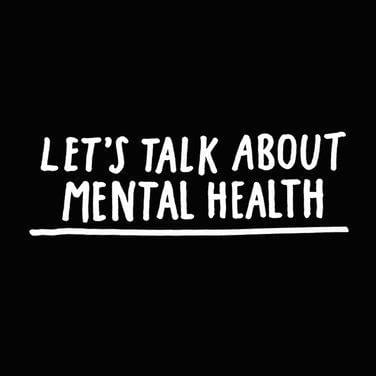Voices From The IBPF Community
After reviewing our January posts, IBPF is excited about the increasing participation in our mental health Facebook chats! Every time somebody shares their experiences or advice, another person dealing with the same issue is being helped. This month we even had a few people message us with requests for the weekly question. Here is what you had to say:
Amanda L. is interested in knowing if anyone else has a “service dog (not an ESA) specifically for bipolar, and if it has made a notable difference with basic life functions?”
Misti R., “I have a service dog for my bipolar disorder. Both my family doctor and psych dr prescribed him. He’s been trained to help me through anxiety and taking my meds as well as setting routines as dogs are very routine oriented. The more routine in my life, the less stress and the less triggers I encounter. Even in the throws of depression I have to walk the dog!”
Merrilee P., “My mental health Dr filled out a medical verification for service animal. As it so happened, my friends dog had just had a litter and he offered one to me. Dogs are so intuitive that she almost trained herself. She goes everywhere with me and has saved my life during debilitating anxiety attacks. She naturally will lean into me to almost give a swaddling effect and won’t take her eyes off me.. The federal law for service animals defines a service animal as any guide dog individually trained to provide assistance to an individual with a disability. They are service animals under ada regardless of whether they have been licensed or certified by a state or local government. Hope this helps.”
Alania M., “Yes, I have a service dog for my bipolar and anxiety. My service dog has helped me so much to calm me down and I take my service dog to classes and all my appointments. My psychiatrist gave me letter so that I can have my dog as my service dog.”
What is the best advice you have received about living with bipolar disorder?
James H., “Tell the truth to myself and others about the effects of my illness, and the self-care I require to accommodate my healing.”
Landon H., “That is everything is temporary, including emotional states.”
David C., “You have to learn to advocate for yourself. Medicine and physicians are not magicians. They need input.”
Kim P., “Live like you’re in a wave pool . Some waves will knock you over but for the most part it’s enjoyable .”
Tony C., “Your illness is heredity,you couldn’t control that, but how you manage it, is within your control, and will determine your quality of life.”
Katie R., “Take your meds, even when your mania says you don’t need them.”
Ellen L., “Diectectal behavioral therapy! There is a workbook for those with certain illness. Being mindful, emotional regulation and positive affirmations.”
Rosalia H., “You get unlimited “do overs”. If you fall, give it an allotted time then pick up and start moving again. The important part is getting back up.”
Lorie L., “Don’t take things so personal. You can’t control what people say or do. But you can control what you say and do……also, you must love yourself first, then others.”
What are some of your triggers for a depressed episode?
Michelle M., “Weight gain”
Kirsty R., “Whenever i get really stressed. I know there’s a chance depression will follow”
Amanda P., “Newest The weather/ time of year. oh and change absolutely zaps me xx”
Mesdames J., “Demeaning statements from other people…lack of support”
Sam H., “People not including me or making me feel alienated but when they do try to include me I don’t feel good enough or I’m too tired. Weight and heat.”
Stefanie R., “Messing up my sleep cycle, over working myself without using self care and isolating.”
AnnaLee M., “Crowds and large groups of people cause a lot of anxiety for me.”
Annie K., “Any kind of guilt. That’s a very common feeling and can be a trigger for me.”
Mindy H., “A brush off from someone. A perceived passive aggressive comment from anyone. Criticism.”
Now we would like to know what some of your triggers are for manic episodes!
Rachel G., “Over excited or stimulation or extreme frustration”
Amber S., “Major change”
Alana B., “Over excitement and money. Though I’d say having money triggers mania more than over excitement”
Elizabeth S., “Not taking my meds religiously.”
Steve B., “1. Not drinking enough water 2. Forgetting my meds 3. A catalyst; I feel some injustice or problem that I should fix. 4. The first idea for a project that I won’t finish.”
Randi N., “Fear of not getting it all done, when I think it needs to be done. Walking into a room, then another room, and never accomplishing anything. Now I make lists. Things out of my control and not being done “my way.”
Jennifer F., “Lack of sleep, major change, new relationships, sexual attraction”
Jan A., “Sudden changes around me,too many people,lack of sleep,loosing my temper and the weather change from sunny to rain or summet too winter.”
Amy J., “No getting enough sleep and caffeine”


